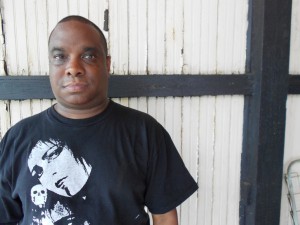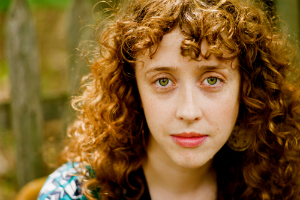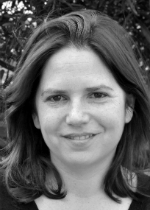Virgins No More: Writers on their First Book Signing
Author: Michael Graves
January 29, 2014
Signing your very first book is a landmark moment for all writers. It’s like your first crack at kissing or screwing or loving. Possibly, it’s a moment you recall in Technicolor. Or, maybe, it’s a sliver of time coated with murk and fuzz. No matter. Scrawling your name on your first published work is a triumph, a gift, and, above all, one lick of frosting found in the writer’s life.
Here’s my tale: Dirty One, my debut collection of stories, was set to be released. The uncorrected proofs were sent to me and I carried my copy around as if it were an actual infant. Constantly, I would inspect the book for any kind of damage. Bends, nicks, food stains. I was fiercely proud of my first book (of course, I still remain so) and would let nothing harm my beautiful, pinkish child. When my “real” copies arrived, I longed to gift and sign the galley for someone who would understand and appreciate the gravity of its existence. At this moment in my life, I recently became married to my longtime boyfriend. His family welcomed me, warmly, unconditionally. So, I chose his mother. Truthfully, I can’t remember what I wrote to her. Something like, “Mom, thanks for being so kind to me…thanks for making Scott…thanks for a wonderful Easter dinner.” Something like that. What I was actually attempting to say was, “Thank you for loving me, uncorrected and spotted with errors. I love you the same way.”
I reached out to several writers to nab a taste of their first times…
Craig Laurance Gidney
When you’re an adult, birthdays are kind of underwhelming. It’s usually a wall of Facebook drive-by postings, and a nice dinner out with your family. However, my 40th birthday was something special. My debut collection, Sea, Swallow Me and Other Stories was officially released on my birthday,
November 11th. A book release event, sponsored by the DC Gay and Lesbian Center, was also held on that day as well. My publisher, Lethe Press run by Steve Berman, sent a huge, beautiful bouquet of assorted flowers to the Center. Maybe 40 people, a few of them strangers, showed up to hear me read from the collection. I picked the shortest piece, called “Magpie Sisters” to read aloud, and it was followed by a flurry of signing. I think having a book signing on your birthday is almost as good as a trip to Hawaii.
Craig Laurance Gidney is the author of Sea, Swallow Me and Other Stories (2008, Lethe Press) a collection of short fantasy fiction, and the YA novel Bereft (2013, Tiny Satchel Press). An as-yet-untitled collection of short fiction will be coming out in 2014 from Rebel Satori Press.
Elizabeth Lindsey Rogers
Should I choose the blank page for my signature? Use the inside of the cover? Pen in hand, I chose the title page, just underneath my printed name. Muscle memory lead me through the swirling and looping, evoking a paper trail of every signature that had come before the signing of the book: apartment leases, contracts, guest books, medical procedure forms, the backs of new debit cards.
And then, the inscribed message. What do you say to your reader, the person you’d imagined the whole time you were writing, before the object of the book existed? My hand shook as I struggled to ink out my well-meaning message. All knowledge of spelling seemed to take to the wind, vowels and consonants scrambling, an experience I usually only have when faced with the pressure of writing on a blackboard. Every time I made a spelling mistake in the inscription, I’d have to correct myself by making an ink blot (I should’ve used a pencil!), resulting in a message that was filled with blue dots and cross-outs.
It seemed fitting, somehow, that publishing a book would now render me incapable of putting together the simplest of words. Language is a mystery; it’s good to stay humble.
Elizabeth Lindsey Rogers’ debut collection of poetry, Chord Box (Arkansas Press), is available now. She is also a Kenyon Review Fellow.
Brian Centrone
It was the last day of class for an Intro to Literature course I was teaching in the spring of 13. I was sitting at my desk collecting final exams when I looked up at a student preparing to leave. She was moving slowly and I saw, in her hand, a copy of my newly published debut novel, An Ordinary Boy. I stared
at it for a brief moment, stunned. In my head I thought, “That’s my novel,” but I can’t say it fully registered. The student came up to me and asked if I could sign her copy. I was flabbergasted. The whole situation seemed unreal to me. Not only was I taken by surprise, but I was unprepared for the occasion. The book had only been out a few weeks; barely enough time for me to consider my signing preference. Aside from my fondness for signing my name in purple ink, I knew not if I wanted to sign my whole name, if I wanted to include a stock message, or if I should even date it. Without anytime to mull my options over, and without a purple-inked pen in sight, I scrambled for an appropriate writing utensil. Lucky, my student had a worn-out fine-tip black sharpie for me to use. I wrote slowly and deliberately, thinking about what to say. This was a great student. I wondered if I should write something like, “It was a pleasure to teach you,” but the thought of all those words mixing with my nerves equaled a nonstarter. I wrote simply, “Many Thanks,” which in all honesty was how I felt at that moment. I managed to follow that up with a: “Best, Brian,” and what looked like a bizarre scribble-scrabble in lieu of my last name. I closed the book and handed it back to her, thanking her again. As she walked away, I thought to myself, “That book is going to be worth a lot of money one day.” After all, it’s the only copy I’ve ever signed in black ink.
Brian Centrone is the author of several short stories, poems, dramas, and the novel An Ordinary Boy (Seventh Window Publications).
Leah Horlick
Despite being born on Yom Kippur, I’ve never been an observant Jew. But the year that I came home to launch my first book was the first year I missed Seder, and I was surprised to find how much I missed my shiksa granny’s latkes, or stumbling after my zayde through every last verse of Chad Gadye or Dayenu. That year, I had the good fortune to read from Riot Lung at one of the last independent bookstores in Saskatoon, where I had worked for a year prior. And in addition to the small crowd of former coworkers, dear friends, and family who turned up, there was an unlikely guest—the cantor from the synagogue I so rarely attended.
I don’t remember signing my very first book, but I’ll never forget when the cantor approached me in line before the reading. Having not seen him since observing a stilted Kaddish years earlier, I wasn’t sure what to do. Even less sure when, after I signed his book, he placed his hand on the crown of my head and gave me the traditional blessing for children on Shabbat. May God make you like Sarah and Rebecca, Rachel and Leah—but this time, it was different. Instead of the foremothers of our faith, the cantor named Elizabeth Brewster, Martha Blum, and Anne Szumigalski—not only celebrated writers in my home community, two of whom were Jewish, but also dear friends who had often joined us at my grandparents’ house for Seder. I grew up surrounded by thinking, writing, survivor women, and to be blessed in their name—a shtik naches.
My zayde remains the only other person who has ever recited the Shabbos bracha over me, and in the advanced stages of his Alzheimer’s, unable to tell sunrise from sunset, he was unable to attend any of my readings. He died a month after my book came out. I’m sure the cantor knew what was to come. I think of that night as the truest of mitzvahs: to have been witnessed and named in the matriarchal heritage of our people, in the presence of those who knew their task was to pass the blessing on.
Leah Horlick is a writer and poet from Treaty Six Cree territory, Saskatoon, SK. A 2012 Lambda Literary Fellow in Poetry, her writing has appeared in So To Speak, Canadian Dimension, GRAIN, Poetry is Dead, Plenitude, and on Autostraddle. Her first collection of poetry, Riot Lung (Thistledown Press, 2012) was shortlisted for a Saskatchewan Book Award.
David Pratt
I don’t remember inscribing my first book. I know where it happened, though. When Bob the Book came out in October 2010, I held a modest reading/signing at the Cornelia Street Café in Greenwich Village.
But having something at Cornelia Street was important to me. Years before, newly single, feeling a bit lost but ever hopeful about my writing, I joined a group of gay writers that gathered weekly to share what they were doing toward their careers. We also held readings, about four a year, at Cornelia Street, featuring ourselves and prominent guest stars: Christopher Bram, Joan Larkin, Peter Cameron, Jameson Currier, now my publisher, and others. Downstairs at Cornelia Street, formerly the Caffe Cino, where Lanford Wilson, Sam Shepard, et.al. started the Off-Off Broadway movement, became my cozy, bohemian home-away-from-home. There I gave my first readings. They kept me going until eventually I wrote Bob and even more eventually published it (him?).
By then I had not read at Cornelia Street in years. It had had a makeover – still bohemian, now color coordinated. Attendees that night included some wonderful surprises – people I had not seen in years, some of whom had traveled far or forsaken work or family for the evening. Jim Currier presided in back, a proud papa with a stack of books. That night, I was the only one on the bill.
I can also tell you, regarding that first inscription, how I felt, because it’s how I always feel signing a book: nervous about spelling the inscribee’s name, not writing something dumb, and not having a hand spasm while signing my own name. It’s three years on now, none of that has changed.
David Pratt won a 2011 Lambda Literary Award for his debut novel, Bob the Book. His story collection, My Movie, from Chelsea Station Editions, includes new work and short fiction originally published in Christopher Street, The James White Review, Harrington Gay Men’s Fiction Quarterly, Velvet Mafia, Lodestar Quarterly and in the anthologies Men Seeking Men, His3 and Fresh Men 2. Recent anthology publications include Jameson Currier’s With (Chelsea Station), Paul Alan Fahey’s The Other Man (JMS) and Jerry Wheeler’s The Dirty Diner (Bold Strokes).
Lucy Corin
First book, first signing, I don’t remember. I felt uncomfortable. Yearbook feeling. Pony show feeling. I’m just a person, I have no wisdom for you. I don’t collect them. Even on the reader side I’m freaked out. Stand there with a book I bought, what do I want of this poor writer now? I have made messes in some people’s perfectly nicely purchased books with my anxieties about signing them. Problem with authority. Problem with celebrity. Problem with writers over writing.
But still. It’s a ritual of handing the object over after doing all I could do to make it, having it handed back to me, and then me handing it back again, and that is something to get behind. How could I get behind it? This book, I made stamps—a set of six that I carved from linoleum. I’m no artist. That’s the spirit. This book is called One Hundred Apocalypses and Other Apocalypses, so I made six little apocalypses, and the reader chooses one. It’s so much better. I can list a thousand ways it’s better now. “Which apocalypse would you like?” Stamp. Place. Date. Do you want your name? Here’s mine.
Lucy Corin is the author of the short story collection The Entire Predicament (Tin House Books) and the novel, Everyday Psychokillers: A History for Girls (FC2) and the collection One Hundred Apocalypses and Other Apocalypses (McSweeney’s Books).







